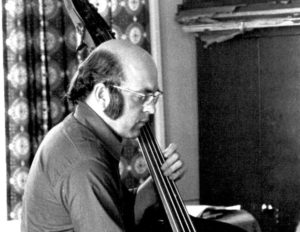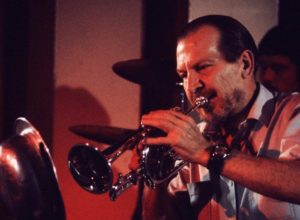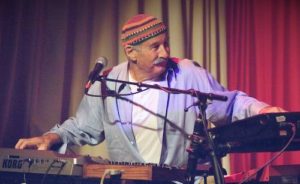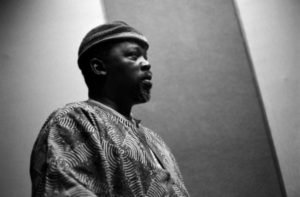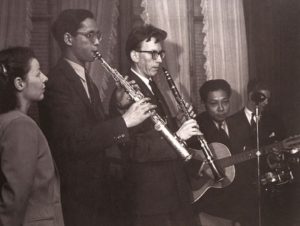Karel Velebný
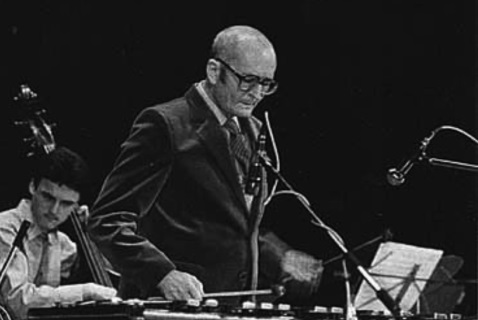
Czech multi-instrumentalist Karel Velebný (1931-1989) was a tremendously influential figure on the jazz scene in Czechoslovakia, who died just a few years before Slovakia and the Czech Republic became independent nations. Velebný was born in Prague and started on piano at a young age, and after becoming interested in jazz, he taught himself alto saxophone as a teenager. He attended the Prague Conservatory, specialising in drums, and began to perform while still a student. Eventually, Velebný would master several instruments well enough to record – vibraphone, tenor saxophone, piano, bass clarinet and percussion.
In 1956 Velebný joined Karel Krautgartner‘s quintet, continuing to work with the clarinettist until the latter’s move to Austria in 1968. In 1958 he co-founded Studio 5, together with bassist Luděk Hulan, a band that was soon absorbed into the Danish Radio Dance Orchestra, led by Krautgartner. Velebný then joined fellow Studio 5 alumnus, saxophonist Jan Konopásek, in forming the SHQ, a quintet named after the Spejbl and Hurvínek Theater, with which it was closely associated in its early years. Initially influenced by West Coast ‘cool’ jazz, the group developed over two decades, with shifting lineups, but always under Velebný’s leadership, into a collective that would explore third stream ‘classical meets jazz’ compositions, free jazz, jazz-rock and soul-jazz grooves, and explorations of Czech folk music, and in the process became the most influential band in Czech jazz.
SHQ released a number of high quality albums from their self-titled debut in 1965 into the 1980s, many released on Supraphon, one of three state-run labels available to them. Among the talented players making appearances are Slovak trumpeter Laco Déczi, saxophonist and flautist Jiří Stivín, and pianists Luděk Švábenský and Emil Viklický. By the late 1960s, Velebný experimented with larger ensembles, inlcuding a Nonet recording of 1968, with unusual woodwind textures. Velebný himself, suffering from ill health, had to give up saxophone and vibraphone, and is mostly heard on piano in later recordings. In the 1970s, he became an important figure in jazz education in Czechoslovakia, writing textbooks and organising a long-running Summer Jazz Workshop. He was just 57 when he died in 1989.
Key Recordings:
(S+H)Q + Friends (Supraphon 1965)
Nonet (SABA 1968)
Týnom tánom (Supraphon 1971)
